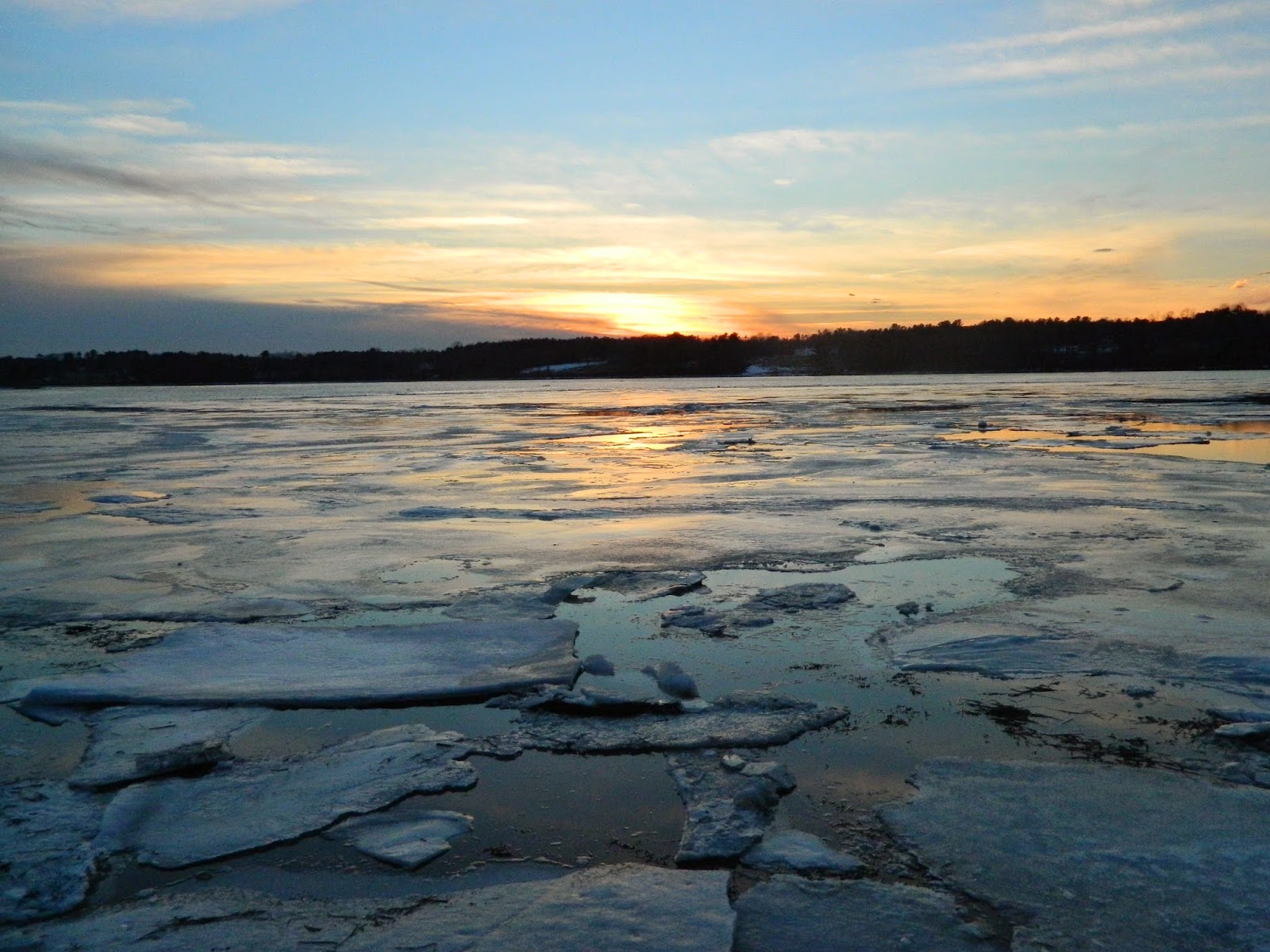My days have been filled with field trips through the forests of Maine, chores on the farm, and HEP (Human Ecology Project) work. I’ve slept in 12 degree Fahrenheit cabins, roved in salt marsh mud, and squealed with piglets. The coast of Maine has been welcoming.

Though it is not abroad, I cannot stress this enough, Chewonki has made a huge impact on me. Seeing a community (or commune) like this try to function in tandem with each other and the environment around it makes me hopeful for the future and appreciate what I have. You are not the same after using compost toilets on the daily. What a cliché … Or not. Maybe I have been at Chewonki for too long.
I will miss the landscape, food (so nutritious and farm grown), and most importantly the organisms here. Be them people, frogs, cows, Rockweed (Fucus.) or the Eastern White Pines that guard the campus as arboreal centurions. The wind blows through them sometimes causing a symphony of chickadees to scatter while the swaying masses begin to creak; I will lose my free orchestra soon. I’m going to miss the atmosphere of openness and freshness they create.
This is not the say Chewonki was all dandelions and sunshine 24/7. It was cold more than half of the time, some academics were really challenging, and the overall transition from the familiar to the bizarre was difficult especially in the beginning. Chewonki takes work, but when you put in positive energy and a little sweat, the reward is worth it. Chewonki has helped my ability to transition and manage change. I was already capable of this, but the school has augmented this aptness. I feel more prepared for high education ahead of me and future abroad opportunities I hope to pursue.

will not have the fortune on feasting on them. Chewonki always likes to draw parallels between where we get our food and how we manage it. I’ve come to respect my food more from meeting creatures big and small like my piggy friends. I’m still a proud omnivore, but I am much more conscious of where my food comes from and how it is produced. (Photo credits by PintsizedPioneer)
I’ve used this place as a vocational school for my future goal as a field researcher. The science class, The Natural History of the Maine Coast, has been such a great step to my desire of traveling the world studying wildlife. I feel I have learned essential knowledge that I can augment through more experience and focused study in the years to come. This place has been a great location for me to hone my biology skills. I still have some much more to learn.
Chewonki reminds me that transformative growth can happen anywhere at any moment. Be it when writing an Ethics paper that is frying your brain and the stress causes you to have an epiphany or perhaps just during a lonely walk into the woods. Though, I don’t think I would have grown as much if I studied abroad, at least not right now. I came here to be introspective, test my limits to see what I could accomplish, and learn skills I’ll need in the future. If I was abroad, I think I’d be too concerned about absorbing the culture or learning the language. Right now, Chewonki was exactly what I needed for growth.
However, at times I feel I haven’t grown. I feel more childlike than ever. I played in mud here, danced in fields, and was even encouraged to look for snakes and frogs. Can one grow up by being a child? I have a hunch that I am not the only Chewonki alumna to ponder this. Maybe I just need to step back and live a life without Chewonki to see how it has really affected me. Like a good “Site Description” in a field journal, I need to take few minutes to fully realize the mechanics and patterns of a location in order to see its importance.

supposed to use them as a place to be connected and reflect on the Chewonki experience
and life in general while in nature. We were also supposed to watch it change over time
(hence the “phenology” aspect). My spot was actually in a tidal zone, so I went one day only to
find that it had been swallowed by the sea. That’s life I guess. (Photo credits by PintsizedPioneer)
I have found inspiration, challenges, and love at this place. I have grown emotionally and physically through a frozen winter and “warm” spring. I have not finished growing. This place has been a mere catalyst in my development of understanding who I am in relation to my environment and myself. Chewonki always talks about one’s impact on the world. I will have to continue thinking about this quandary for years to come and I may not be able to answer it.
I feel like a less pretentious Thoreau venturing into the woods, a mere dirt road away from civilization. However unlike DHT, I am not in isolation but among friends whose impressions and influences are yet to set in on me still. Nevertheless, Walden Pond does not hold a candle to the Chewonki Neck.
I leave you with this quote from John Muir: the creator of the Sierra Club and environmental/wilderness activist. I hope this will help others take the leap and go to Chewonki. A semester is what you make it. By opening up oneself to the land, sea, sky, and people, shimmering wonders galore await you in the dusky woods. Have no fear!
“Thousands of tired, nerve-shaken, over-civilized people are beginning to find out that going to the mountains is going home; that wildness is a necessity; and that mountain parks and reservations are useful not only as fountains of timber and irrigating rivers, but as fountains of life.” – John Muir
